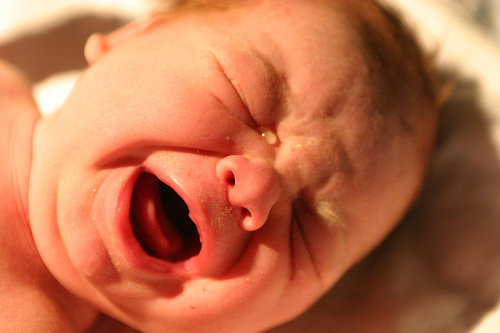
Infant Acid Reflux SymptomsInfant acid reflux symptoms are often caused by GER (gastroesophageal reflux) which happens when the stomach contents flow back up into the esophagus. The actual ring of muscles which control this process is labeled as the LES (lower esophageal sphincter). Their task is to open up and allow for burping or release of gas to occur and this is a normal occurrence in people of all ages. When this happens in little kids and the stomach contents also move upwards, this is what professionals call GER, spitting up or spit up. As you can see the later names are directly describing the action which takes place. Numerous infants go through this stage and can still be content and happy but there are some symptoms which should be looked out for.
There are instances where your baby might arch her or his back so much while crying that it looks as if they are experiencing a seizure. Time To Visit a Doctor Although reflux in children as well as infant reflux is unpleasant to watch, it does not normally interfere with the baby's well-being or growth. The time to contact a doctor is when the infant:
These symptoms usually describe a more serious condition such as pyloric stenosis or GERD (gastroesophageal reflux disease). These illnesses often cause poor weight gain, vomiting and a lot of pain which do inhibit the well being of the child. Pyloric stenosis is quite rare, and is cause by a small valve between the small intestine and the stomach which prevents the contents of the stomach to empty into the small intestines. | |||
*Disclaimer: The information found on this website should not be used as a replacement for professional medical care for the diagnosis, prevention, or treatment of reflux. Please consult with your general practioner or pharmacist before attempting to use any medication (prescription or OTC) or following any of the treatment methods mentioned. This information is provided solely to help you become as informed as possible about the acid reflux condition and its symptoms. |
Home About Us Privacy Contact Us Site Map
© Copyright www.acidrefluxsymptomsnow.com , 2010. All Rights Reserved.
Content Network: asbestos compensation | lower back pain relief



